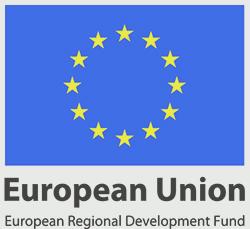LEDs in all streetlamps in UNESCO-protected city centres. Lights that dim at night or don’t switch on until someone cycles past. Researchers from Avans University of Applied Sciences and Portsmouth University have teamed up to find solutions that will help reduce CO2 emissions from public lighting. Over the next 3 years, they will collaborate in the EU-funded Smart Light Concepts (SLIC) project.

CO2 emissions from public lighting
Both Europe and local and regional authorities are behind on their 2020 CO2 reduction goals. Public lighting accounts for approximately 35% of CO2 emissions, meaning significant gains can be achieved in this area. These emissions can be reduced drastically by applying new and existing technologies to public lighting. So far however, little has been achieved. This is due to a number of factors, including uncertainty about financial aspects, a lack of knowledge and uncertainty about the impact on nature, public safety and road safety. The Smart Light Concepts project aims to change this situation, helping us to achieve our ultimate goal: reducing CO2 emissions through the use of sustainable public lighting concepts.
Expected outputs of Smart Light Concepts
We will develop a number of methods, tools and concepts to help promote the use of low-carbon technologies for public lighting. We do this by demonstrating and implementing innovative yet proven technologies in the field of energy saving, energy efficiency and renewable energy for public lighting. These may include funding models, business cases, public engagement and support, a decision support tool and a cross-border knowledge platform.
We will conduct 7 pilot projects focusing on different low-carbon lighting techniques, including dimming, remote, sensors, dynamic optimisation and low voltage. These pilot projects will be conducted in different environments, such as the countryside, urban areas, a nature reserve and an industrial estate. We will demonstrate, monitor and evaluate these projects with respect to reduction of CO2 emissions and societal response. The related funding models and business cases will also be monitored and evaluated. The SLIC project also includes a comprehensive feasibility study on 7 low-carbon technologies that can be used for other projects.
Our aim is to get more than 200 organisations and businesses from participating and non-participating countries involved in this project. These may include government agencies, lighting businesses, nature conservation organisations and public-interest entities.
Partnership
As lead partner of the Smart Light Concepts project Avans University of Applied Sciences collaborates with 7 government agencies and organisations from Belgium, France and Great Britain and The Netherlands:
- University of Portsmouth Higher Education Corporation
- Municipality of Etten-Leur
- Suffolk County Council
- Metropole of Amiens
- City of Bruges
- West Flanders Intermunicipal Association/Municipality of Veurne
- Province of West Flanders
SLIC on LinkedIn.
Support
Smart Light Concepts is an Interreg 2 Seas 2014-2020 project. Interreg 2 Seas is a European Territorial Cooperation programme for England, France, the Netherlands and Belgium (Flanders). The European Regional Development Fund (ERDF) and the Province of Noord- Brabant financially supports Smart Light Concepts.
 |
|


